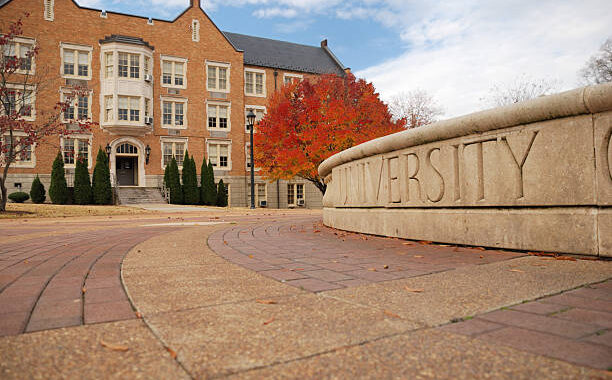About Us
Our mission at FTZ is to provide students with introduction level requirements and awareness to professional careers outside of a traditional educational environment.
Contact usContact Us Today
- 145 fleet st #233 National Harbor, MD 20745
- 240-935-1802
- info@functionaltrainingzone.net
- Monday-Friday: 9:30am-4pm
Exploring Study Abroad Programs: A Gateway to Global Learning
By: Chris the Graduate Studying abroad is one of the most enriching opportunities college students can experience. Whether it’s immersing yourself in a new culture, learning a language, or gaining a global perspective on your field of study, study abroad programs offer a unique chance to expand your horizons. But with so many options available, how do you choose the right program, and what can you expect? Let’s explore the benefits, types of programs, and tips for making the most of your study abroad experience. The Benefits of Studying Abroad 1. Cultural Immersion One of the most significant advantages of studying abroad is the opportunity to immerse yourself in a different culture. Living in a foreign country allows you to experience daily life from a new perspective, whether it’s trying local cuisine, participating in traditional festivals, or simply navigating the public transportation system. For example, if you study in Japan, you might practice the art of tea ceremonies or learn about the intricacies of Japanese etiquette. These experiences can deepen your cultural understanding and make you more adaptable and open-minded. 2. Academic Growth Study abroad programs often provide access to courses and educational opportunities that may not be available at your home institution. Imagine studying Renaissance art in Florence, marine biology on Australia’s Great Barrier Reef, or international business in Shanghai. These experiences can enhance your academic growth by exposing you to new methodologies, perspectives, and resources. Additionally, many programs offer hands-on learning opportunities, such as internships or research projects, that allow you to apply your knowledge in real-world settings. 3. Language Skills If you’re studying a foreign language, there’s no better way to improve your fluency than by living in a country where that language is spoken. For instance, spending a semester in Spain can help you refine your Spanish skills through daily interactions while attending classes taught in the language can deepen your comprehension. Even if you’re not studying a language, simply being in an environment where a different language is spoken can enhance your communication skills and boost your confidence. 4. Personal Development Studying abroad challenges you to step outside your comfort zone, fostering personal growth and independence. You’ll learn to navigate unfamiliar environments, adapt to new customs, and solve problems on your own. This experience can build resilience, self-reliance, and a greater sense of self. For many students, study abroad is a transformative experience that shapes their future goals and perspectives. 5. Career Advantages In today’s globalized world, employers value candidates with international experience. Studying abroad can make your resume stand out, demonstrating your adaptability, cultural competence, and willingness to take on challenges. Whether you’re pursuing a career in international relations, business, education, or any other field, the skills and experiences you gain abroad can give you a competitive edge in the job market. Types of Study Abroad Programs 1. Semester or Year-Long Programs These programs allow you to spend a full semester or academic year at a partner university abroad. They’re ideal if you want to fully immerse yourself in another culture and academic environment. For example, many universities have exchange programs with institutions around the world, allowing you to study abroad while paying your regular tuition fees. 2. Short-Term Programs If a semester or year abroad doesn’t fit into your schedule, short-term programs—such as summer or winter break courses—might be a better option. These programs usually last a few weeks and offer intensive study in a specific subject. For example, you could spend a month in Costa Rica studying environmental science or two weeks in France learning about European history. 3. Faculty-Led Programs In faculty-led programs, a group of students travels abroad with a professor from their home university. These programs are often focused on a specific academic topic and include a mix of classroom learning and field experiences. For instance, a biology professor might lead a study abroad trip to the Amazon Rainforest to study biodiversity, combining lectures with hands-on research in the field. 4. Internship and Service-Learning Programs These programs combine academic study with practical experience through internships or service projects. For example, you might intern with a non-profit organization in South Africa or participate in a community development project in India. These programs provide valuable work experience while allowing you to contribute to the local community. Tips for Making the Most of Your Study Abroad Experience 1. Research Your Options Start by exploring the study abroad programs offered by your college or university. Consider factors such as the location, length of the program, cost, language requirements, and academic focus. Talk to study abroad advisors, professors, and students who have previously studied abroad to get their insights and recommendations. 2. Plan Ahead Once you’ve chosen a program, it’s essential to plan ahead. Make sure you understand the application process, including deadlines, required documents, and any prerequisites. You’ll also need to consider how study abroad fits into your academic plan—will the credits transfer back to your home institution? Will you need to take specific courses before or after your time abroad? 3. Embrace the Experience While abroad, immerse yourself in the local culture, and take advantage of every opportunity to learn and explore. Attend local events, try new foods, and engage with people in the community. Don’t be afraid to step out of your comfort zone—this is your chance to grow both personally and academically. 4. Stay Connected Keep in touch with your home university, friends, and family while you’re abroad, but also make an effort to build new relationships in your host country. Networking with professors, students, and professionals abroad can open doors to future opportunities. A World of Possibilities Study abroad programs offer an unparalleled opportunity to expand your academic, cultural, and personal horizons. Whether you choose a semester-long program in Europe, a short-term course in Asia, or an internship in South America, studying abroad can be a life-changing experience. It’s an investment in your future, providing you with the skills, knowledge, and perspectives to navigate an increasingly interconnected world.
- Chris The Grad
- 0 Comments
- September 21, 2024
Living on Campus vs. Off Campus: Which is Right for You?
By: Chris the Graduate One of the biggest decisions you’ll make as a college student is whether to live on or off campus. Each option has its perks and challenges, and the choice you make can significantly impact your college experience. Whether you’re a freshman stepping into college life or an upperclassman considering a change, weighing the pros and cons is essential. Let’s dive into the key differences between living on campus and off campus, so you can decide which one suits your lifestyle and goals. Living on Campus: The Immersive Experience 1. Convenience and Proximity Living on campus offers the ultimate convenience. You’re just minutes away from your classes, the library, dining halls, and other campus resources. Imagine rolling out of bed 10 minutes before your 9 a.m. class and still making it on time. This proximity can save you a lot of time and stress, especially during exam season when every minute counts. 2. Social Opportunities When you live on campus, you’re right in the heart of college life. Dorms are buzzing with activity, and it’s easy to meet new people and get involved in campus events. For example, many students find their closest friends in their dorm or residence hall. There’s also the added benefit of being surrounded by other students who are going through the same experiences, which can create a strong sense of community and support. 3. All-Inclusive Amenities Most on-campus housing comes with utilities, internet, and meal plans included, making budgeting simpler. There’s no need to worry about setting up and paying for Wi-Fi, water, or electricity separately. Plus, meal plans mean you don’t have to cook or grocery shop, giving you more time to focus on your studies and social life. 4. Safety and Security College campuses typically have security measures in place, such as 24/7 campus police, secure dorm access, and emergency call stations. This can provide peace of mind, especially for students and their families. Knowing that help is always nearby can make living on campus feel safer than off-campus options. Living Off-Campus: Independence and Flexibility 1. More Freedom and Independence Living off campus usually means more freedom. You can choose your own living space, cook your own meals, and live by your own rules. This independence can be empowering and a great way to prepare for life after college. For instance, living off campus might allow you to have pets, host friends without restrictions, or decorate your space to your liking. 2. Potential Cost Savings Depending on your location and the cost of living in your college town, living off-campus can be more affordable than on-campus housing. You have the option to share an apartment with roommates, which can significantly reduce your rent and utility costs. Additionally, you’re not tied to a meal plan, so you can save money by cooking your own meals. 3. Real-World Experience Living off campus gives you a taste of the real world. You’ll learn to manage household responsibilities like paying rent, setting up utilities, and dealing with landlords. This experience can be invaluable as you transition from college to post-graduation life. It’s an opportunity to develop life skills that will serve you well beyond your college years. 4. Separation from Campus Life While living off campus offers freedom, it can also make you feel disconnected from the campus community. Commuting to class, missing out on impromptu social gatherings, and being removed from the hustle and bustle of campus life are potential downsides. However, some students find this separation beneficial for maintaining a healthy work-life balance, especially if they need a quiet space to study and relax. Making the Choice: What’s Right for You? 1. Consider Your Priorities Your choice should align with your priorities and lifestyle. If you value convenience, social opportunities, and being fully immersed in college life, living on campus might be the better choice. However, if you’re seeking independence, more control over your living situation, and potential cost savings, off-campus living could be the way to go. 2. Evaluate Your Budget Finances are a significant factor in this decision. Carefully consider the costs associated with both options, including rent, utilities, food, and transportation. Don’t forget to account for hidden costs like parking fees, commuting expenses, and the potential need for a car if you live off campus. 3. Think About Your College Experience Reflect on the kind of college experience you want. Do you want to be in the middle of all the action, or do you prefer a quieter, more independent lifestyle? Your living situation can shape your college years in more ways than you might expect. Ultimately, the decision to live on or off campus is personal and depends on your preferences, budget, and goals. Both options have their unique advantages and challenges, and what works for one person might not work for another. Whatever you choose, remember that your living situation is just one part of your college experience. Make the most of it by getting involved, making connections, and embracing the opportunities that come your way. College is a time of growth, learning, and exploration no matter where you live.
- Chris The Grad
- 0 Comments
- September 14, 2024
The Unspoken Realities of College: What No One Tells You
By: Chris the Graduate When you think about college, you might imagine late-night study sessions, exciting social events, and the freedom of living on your own. While all of these are part of the experience, there’s a lot more to college life that often goes unmentioned. Beyond the lectures and the parties, college is a journey of personal growth and self-discovery. Here are five things no one tells you about college and why they’re important The Learning Curve Isn’t Just Academic The academic challenges of college are well-documented. However, the steepest learning curve might not come from the classroom but from navigating your new life. Imagine this: you’re juggling a demanding course load, a part-time job, and new friendships. Suddenly, you’re responsible for your schedule, your meals, and your laundry. This independence is both exhilarating and overwhelming. Learning how to manage your time, set priorities, and take care of yourself are lessons that go beyond any textbook and they’re crucial to your success. Networking Starts on Day One It’s easy to assume that networking is something to worry about in your junior or senior year, but that’s a misconception. Take the example of Sarah, a freshman who joined a student organization related to her major. By the end of her first year, she had connected with upperclassmen who gave her invaluable advice, introduced her to professors, and even helped her land a summer internship. Networking isn’t just about finding a job; it’s about building relationships that will support and enrich your college experience. Grades Aren’t Everything In high school, getting straight A’s might have been your top priority, but college is a different ballgame. Take John, who chose to take a notoriously difficult course because he was passionate about the subject, even though it meant risking a lower grade. He didn’t get an A, but he gained a deeper understanding of the material and discovered a potential career path he hadn’t considered before. In college, it’s important to remember that learning and personal growth often matter more than a perfect GPA. You Will Fail (And That’s Okay) Failure is a taboo topic, but it’s an inevitable part of the college experience. Consider Emily, who failed her first major exam and was devastated. She could have let it derail her, but instead, she sought help from her professor, adjusted her study habits, and ultimately passed the course. Failure doesn’t define you—it’s how you respond to it that matters. College is a safe space to learn from your mistakes and develop resilience. Your Mental Health Is a Priority With all the pressures of college, it’s easy to put your mental health on the back burner. But this can lead to burnout, anxiety, and even depression. Think of James, who was so focused on maintaining his grades and social life that he ignored signs of stress until he had a full-blown panic attack. He realized that taking care of his mental health was as important as any assignment or exam. He started attending counseling sessions, practicing mindfulness, and setting boundaries to protect his well-being. College is demanding, but you don’t have to go through it alone. Prioritizing your mental health is essential to thriving during these years. Embracing the College Journey College is a time of immense growth, both academically and personally. It’s a journey filled with challenges, but also with opportunities to learn, connect, and evolve. By understanding the unspoken realities of college, you can navigate these years with greater confidence and resilience. Remember, college isn’t just about getting a degree; it’s about discovering who you are, what you’re passionate about, and how you want to contribute to the world. Embrace the process, learn from every experience, and know that it’s okay to stumble along the way. What matters most is that you keep moving forward, growing, and becoming the best version of yourself.
- Chris The Grad
- 0 Comments
- September 7, 2024
Gran Universidad
Days with Daniela ¡Hola! Bienvenidos a mi blog, hoy vamos a hablar de cosas positivas y negativas de estudiar y vivir en una Universidad grande, en mi caso soy estudiante de Texas A&M University. Pros: Contras: En conclusión, estas son algunos ejemplos de pros y contras de estar en una Universidad grande, en parte a base mi experiencia, yo recomendaría visitar las universidades antes de hacer esa gran decisión como es elegir una Universidad. Recuerda que esta decisión depender de tus presencias y que es lo que buscas para tus metas de vida.
- Days with Daniela
- 0 Comments
- August 28, 2024
Big College
Days with Daniela Hello! Welcome to my blog, today we are going to talk about the positive and negative things of studying and living in a big University, in my case I am a student at Texas A&M University. Pros: • There are plenty of opportunities for socializing, and extracurricular activities. There are several options to do some sports, there are clubs of many types, either related to your career or clubs of things you have in common with other people. • At large universities, you may have more job opportunities, research resources working with your professors, and even more opportunities for people who are more interested in sports. You will also have more opportunities for scholarships and financial aid if you meet certain requirements. Cons: • Face-to-face classes have up to three hundred students in a classroom. It will be harder to socialize with your classmates and sometimes not have one-on-one interactions with your teachers and they will not always be able to help you because they have so many more students to teach. But like any University, they also offer tutorials with teaching assistants and pages with tutorials to learn the best material. • The university is big; therefore, you must learn your ways and times to be able to arrive on time. If possible, you should have a means of transportation such as skateboards and bicycles. In my case, I was on foot like most people. • They have many departments that serve certain services, therefore, you have to learn the ones you will need the most and know their location in case you need help with something, in my case I always had a list with addresses for services such as Financial Aid and Disability, but since it is a large school and there are many students it is likely that the help you receive or the services are not the best. Students may not receive as much personalized attention and you may have to deal with long wait times for help, as was in my case. In conclusion, these are examples of the pros and cons of being in a large University, partly based on my experience, I would recommend visiting universities before making that big decision such as choosing a university. Remember that this decision will depend on your presence and that it is what you are looking for in your life goals.
- Days with Daniela
- 0 Comments
- August 26, 2024
The Hard Part of College That No One Talks About
By: Chris the Graduate College is often portrayed as the best time of your life, full of new experiences, friendships, and opportunities. While this is true, there are also challenges that students face, which aren’t always talked about. It’s important to acknowledge these difficulties, not to discourage you, but to prepare you and offer hope that you can overcome them. Here’s a look at some of the tougher parts of college and how to navigate them. Feeling Overwhelmed One of the hardest parts of college is feeling overwhelmed by the sheer amount of work and responsibilities. Between classes, homework, projects, part-time jobs, and social obligations, it can feel like you’re juggling too many balls at once. Tip for Coping: Break tasks into smaller, manageable chunks. Use planners or digital tools to keep track of deadlines. Remember, it’s okay to ask for help. Most colleges offer resources like tutoring centers, academic advisors, and counseling services. Talking to someone about your stress can make a big difference. Homesickness and Loneliness Leaving home for the first time can be tough. Missing family, friends, and the comfort of home is natural, but it can lead to feelings of loneliness. Tip for Coping: Stay connected with loved ones through regular calls or video chats. Try to get involved on campus. Joining clubs, sports teams, or study groups can help you meet new people and create a support network. Remember, many students are in the same boat and are looking to make new friends. Academic Pressure The academic demands of college can be intense. You might find yourself struggling with subjects that were easier in high school, or feeling pressure to maintain a high GPA. Tip for Coping: Focus on doing your best rather than achieving perfection. Take advantage of professors’ office hours to seek help and clarification. Form study groups with classmates; learning together can make the material more understandable and less daunting. Financial Stress College is expensive, and financial stress is a common issue. Whether it’s worrying about tuition, textbooks, or living expenses, money can be a significant source of anxiety. Tip for Coping: Create a budget to manage your expenses and stick to it. Look for part-time jobs or work-study programs that fit your schedule. Many colleges have financial aid offices that can help you find scholarships, grants, and other resources to ease the burden. Uncertainty About the Future Choosing a major, thinking about careers, and making long-term plans can be overwhelming. It’s common to feel uncertain about your future and question if you’re on the right path. Tip for Coping: It’s okay not to have everything figured out right away. College is a time for exploration. Take different courses to discover what you’re passionate about. Use career services offered by your college for guidance and internship opportunities. Remember, many people change their career paths multiple times throughout their lives. Maintaining Mental Health With all these pressures, maintaining your mental health can be challenging. Stress, anxiety, and depression are common among college students, yet they’re often not talked about openly. Tip for Coping: Prioritize self-care. Make time for activities that relax and rejuvenate you, whether it’s exercise, hobbies, or spending time with friends. Don’t hesitate to seek professional help if you’re struggling. Many colleges offer free or low-cost counseling services. Conclusion The hard parts of college are real, but they’re also surmountable. Acknowledging these challenges is the first step to overcoming them. Remember, it’s okay to struggle and to seek help. College is not just about academics; it’s a journey of personal growth and resilience. Despite the difficulties, college can be an incredibly rewarding experience. The friendships you make, the knowledge you gain, and the personal growth you experience are invaluable. By facing the tough times head-on and utilizing the resources available to you, you can navigate through the challenges and come out stronger on the other side. So, take a deep breath, believe in yourself, and embrace the journey. You’ve got this!
- Chris The Grad
- 0 Comments
- July 20, 2024
How Classes Function in College
By: Chris the Graduate In college, how classes function can greatly impact a student’s academic journey. The structure, time management, and relationships with professors all play crucial roles in determining success. Unlike high school, where the learning environment is more guided, college offers a more autonomous and self-directed learning experience. This blog delves into the intricacies of college classes, providing insights on how to navigate them effectively. The Basic Structure College classes come in various formats, each tailored to different learning styles and academic goals. Lectures are common for introductory courses and involve a professor delivering information to many students. These sessions focus on presenting key concepts and foundational knowledge. Seminars, on the other hand, are smaller and more interactive. They encourage in-depth exploration of specific topics through discussions, presentations, and group activities. This format allows for closer interaction with the professor and fellow students, fostering a collaborative learning environment. Labs and workshops provide hands-on experience and practical application of theoretical concepts. While labs are typically associated with science and engineering courses, workshops can be found in a broader range of disciplines. Both formats emphasize teamwork and active participation, essential for mastering practical skills. Assignments and Grading Assignments and grading in college can vary widely depending on the course and professor. Understanding how these elements work is vital for managing your academic workload and achieving success. Assignments can include a range of activities such as essays, research papers, problem sets, projects, and presentations. Each assignment type has its own set of expectations and requirements, so it’s important to pay close attention to the instructions and grading rubrics provided by the professor. Grading systems in college often differ from high school. Instead of receiving frequent, smaller grades, students might have fewer assignments that carry more weight. Midterms and finals can account for a significant portion of the final grade. Participation, attendance, and smaller assignments also contribute to the overall grade but typically to a lesser extent. Time management is crucial for handling assignments effectively. Breaking down large projects into smaller tasks and setting deadlines for each part can make the workload more manageable. Regularly reviewing the syllabus and staying ahead of deadlines helps prevent last-minute stress. Pre-existing Knowledge and Self-Directed Learning College professors expect students to come prepared with a certain level of pre-existing knowledge and the ability to learn independently. This expectation means students must take a proactive approach to their education. Pre-class preparation is essential. Professors often assign readings, videos, or problem sets to be completed before class. This material forms the basis for lectures and discussions, so staying on top of pre-class work is crucial. Active participation in class discussions and activities demonstrates understanding of the material and helps reinforce learning. Significant learning occurs outside the classroom as well. Regularly reviewing lecture notes, completing assignments, and preparing for exams independently are key components of self-directed learning. Building Relationships with Professors Developing positive relationships with professors can significantly enhance the college experience. Attending office hours is one of the best ways to build these relationships. Professors hold office hours specifically to meet with students, providing an opportunity to ask questions, seek clarification on course material, and discuss academic interests. Engaging actively in class also helps build rapport with professors. Showing interest in the subject and participating in discussions can make a lasting impression. Seeking feedback on assignments and exams demonstrates a commitment to improvement and academic success. Professionalism is important in all interactions with professors. Being respectful, punctual, and prepared helps build a positive and productive relationship. These relationships can provide valuable support and guidance throughout the college journey. Conclusion Understanding how college classes function and managing your time effectively is crucial for success in higher education. The increased independence offers the opportunity to develop valuable skills in self-directed learning and time management. Building relationships with professors can further enrich the academic experience, providing support and guidance throughout the college journey.
- Chris The Grad
- 0 Comments
- July 13, 2024
Studying to the Max: Tips to Keep Up with Classwork
By: Chris the Graduate Navigating the demands of college coursework can be one of the biggest challenges students faces. The transition from high school to college brings a new level of independence and responsibility that can be both thrilling and overwhelming. With fewer structured deadlines and a greater emphasis on self-directed learning, it’s easy to fall behind if you’re not prepared. However, with the right strategies, staying on top of your classwork and excelling academically is entirely achievable. Here’s a realistic view of what to expect and how to manage your workload effectively to ensure a successful college experience. The Reality of College Classwork Syllabus Shock Pacing and Deadlines Variety of Classes Independent Learning Tips for Managing Classwork Organize and Prioritize Create a Study Schedule Active Participation in Class Effective Note-Taking Leverage Resources Balancing Act Technology as a Tool Stay Flexible Conclusion Managing classwork in college is a balancing act that requires strategic planning, disciplined execution, and flexibility. By organizing your tasks, engaging actively in your studies, and maintaining a healthy lifestyle, you can successfully navigate the academic challenges of college. The goal is not just to survive but to thrive. Happy studying!
- Chris The Grad
- 0 Comments
- June 29, 2024
Ways to Earn Money While in College
By: Chris the Graduate As a student, in college you often find yourself balancing coursework, projects and social activities while also handling constraints. Fortunately, there are opportunities to make money during your college years that can alleviate financial pressure without burdening your already busy schedule. Here are some feasible and well received choices On-Campus Jobs Numerous universities provide a range of job options on campus that are convenient and adaptable for students. These opportunities may involve roles in the library, cafeteria, administrative offices or, as a resident advisor. On campus jobs typically consider the requirements of your timetable. Offer shifts that fit around your classes. Example: Library Assistant Working as a library assistant can involve helping students find resources, organizing materials, and managing checkouts. This job can be particularly beneficial for those who prefer a quieter work environment and can use their downtime to study. Freelancing If you have a skill such as writing, graphic design, web development, or social media management, freelancing can be a lucrative way to earn money. Platforms like Upwork, Fiverr, and Freelancer allow you to offer your services to a global market. Example: Freelance Writer Many businesses and blogs are willing to pay for high-quality content. As a freelance writer, you can take on projects that fit your interests and schedule, building a portfolio that can help you secure more lucrative gigs in the future. Tutoring If you excel in a particular subject, tutoring can be both rewarding and profitable. You can offer your services to fellow students who need help or work with local high school students. Many tutoring positions are available both in-person and online. Example: Math Tutor Helping students understand complex math concepts not only reinforces your own knowledge but can also provide you with a steady income. Tutoring sessions can often be scheduled around your classes, making it a flexible option. Part-Time Jobs Local businesses around college campuses often hire students for part-time work. Positions in retail, food service, or customer service can offer flexible hours and valuable work experience. Example: Barista Working as a barista at a coffee shop can be a fun way to earn money while developing customer service skills. Many coffee shops offer early morning or late evening shifts, which can fit well with your class schedule. Gig Economy Jobs The gig economy offers a variety of short-term, flexible job opportunities. Companies like Uber, Lyft, Door Dash, and TaskRabbit allow you to work when you have free time and need extra cash. Example: Delivery Driver As a delivery driver for services like Door Dash or Uber Eats, you can choose your hours and make deliveries in your spare time. This job can be particularly convenient if you have a car and enjoy driving. Selling Crafts or Products If you have a knack for creating handmade items or finding unique vintage products, selling them online can be a great way to earn money. Platforms like Etsy, eBay, and Poshmark make it easy to set up a shop and reach a wide audience. Example: Etsy Seller Whether you create jewelry, art, or custom clothing, setting up an Etsy shop allows you to turn your hobby into a business. With some marketing and quality craftsmanship, you can attract customers and make sales. Internships While not always highly paid, internships can provide valuable experience and networking opportunities. Some internships offer stipends or hourly wages, and they often align with your field of study, providing practical experience that can boost your resume. Example: Marketing Intern Working as a marketing intern can give you hands-on experience in your field, helping you develop skills and connections that will be beneficial after graduation. Look for paid internships or those offering stipends to help cover expenses. By exploring these options, you can find a way to earn money while in college that fits your schedule and leverages your skills. Balancing work and study can be challenging, but with the right approach, it’s entirely possible to manage both effectively and set yourself up for future success.
- Chris The Grad
- 0 Comments
- June 15, 2024
The Idea of College VS. The Reality of College
By: Chris the Graduate Entering college is a significant milestone in life, often accompanied by high expectations and dreams. For many high schoolers, the idea of college is shaped by movies, TV shows, and stories from older siblings or friends. However, the reality can be quite different. Here’s a look at some common expectations versus the actual experiences that students often encounter. Expectation: Endless Freedom and Fun High schoolers often imagine college as a paradise of freedom with minimal parental supervision, late-night parties, and newfound independence. The allure of no curfews, making your own schedule, and living in dorms with friends is strong. Reality: Balancing Freedom with Responsibility While it’s true that college offers more freedom, it also comes with significant responsibility. Time management becomes crucial as students juggle classes, assignments, jobs, and social activities. Procrastination, which might have been manageable in high school, can quickly lead to stress and poor performance in college. For example, students who prioritize partying over studying might find themselves struggling to keep up with coursework, leading to anxiety and potential academic probation. Expectation: Light Academic Workload Many incoming students believe college will be similar to high school but with fewer hours spent in class. They expect manageable workloads and ample time for extracurricular activities. Reality: Academic Rigor and Self-Directed Learning College academics can be far more demanding than high school. Courses often require extensive reading, research, and self-study. Unlike high school, where teachers may regularly check homework and progress, college professors expect students to take initiative. A biology major, for example, might spend countless hours in labs and libraries to keep up with the curriculum. The shift from structured high school learning to self-directed college study can be challenging but is essential for success. Expectation: Instant Social Connections Movies often portray college life as an instant gateway to lifelong friendships and a vibrant social scene. The idea of quickly finding a close-knit group of friends and participating in numerous social events is enticing. Reality: Building Friendships Takes Time Making friends in college can take time and effort. Freshmen might feel lonely or homesick initially, especially if they are far from home. Joining clubs, attending campus events, and participating in dorm activities can help, but it requires stepping out of one’s comfort zone. For instance, students who actively participate in club activities or intramural sports often report a more fulfilling social experience. Expectation: Clear Career Path Many students enter college with a clear vision of their career path, believing that their major will directly lead to a specific job. Reality: Exploration and Uncertainty College often turns out to be a period of exploration and self-discovery. It’s common for students to change majors multiple times as they learn more about their interests and strengths. A pre-med student might discover a passion for psychology, or an engineering major might find joy in business. Internships, part-time jobs, and volunteering can provide practical experience and help clarify career goals. Conclusion The transition from high school to college is a significant adjustment that involves balancing newfound freedoms with increased responsibilities. Understanding the realities of college life can help students prepare better and set realistic expectations, leading to a more rewarding and successful college experience.
- Chris The Grad
- 0 Comments
- June 1, 2024










